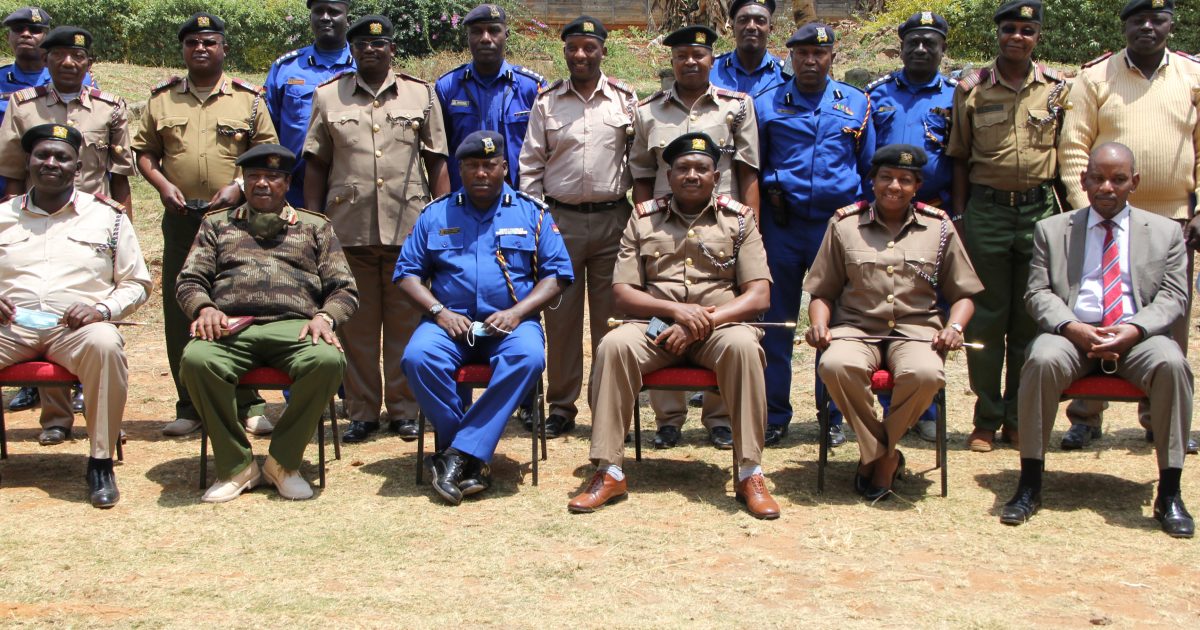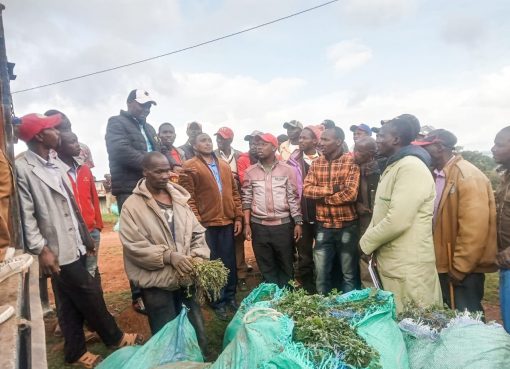The Nairobi Regional Commissioner (RC), James Kianda, has called upon National Administrative Officers and security personnel officers in Nairobi region to be on alert during this period when the country is gearing towards elections to avoid incidences of conflicts.
The Regional Commissioner told the administrators to use the Nyumba Kumi, village elders and community policing committees, to enable them activate early warning systems, that are ready to operate within their jurisdictions to avert conflict early enough.
“Intelligence, community policing, and the various security agencies, must be engaged to make the necessary changes in the fight against insecurity,” he said.
The RC said it is vital for the officers to be checking on the possible conflict areas and mark the hotspots in order to weed out criminal gangs, groups and members of the public, who might use the electioneering period to commit crimes, as well as indulge in illegal trade such as in illicit brews and drugs.
The Regional Commissioner made the remarks when addressing the Deputy County Commissioners, Security Officers, Chiefs And Assistant Chiefs, during a meeting to discuss security, huduma namba uptake and the 100 percent transition to secondary schools’ issues that was held at Kasarani Arena and was attended by the Nairobi County Commissioner, Flora Mworoa, the Nairobi Region Police Commander, Augustine Nthumbi and other members of the Regional Security Intelligence Committee.
Kianda said his office will soon undertake a Rapid Result Initiative (RRI) exercise in Nairobi, in a bid to eliminate illicit brews, adulterated alcoholic drinks and smuggled drinks into the country.
The operation will be conducted by a multiagency team that will include the National Administration, National Police Service, Kenya Revenue Authority, Kenya Bureau of Standards, the County Government and National Authority for the Campaign Against Alcohol and Drug Abuse (NACADA)
Concerning the 100 percent transition, the RC lauded the 100 percent transition of children into secondary schools, which he noted currently standing at 98 percent, and urged all stakeholders to mop-up the remaining two percent.
“I am calling upon all Chief and their Assistants to discuss with school managements and principals on the plight of students who are unable to join schools because they lack uniforms and school fees,” directed Kianda.
He also cautioned both the administrators and security personnel against indulging in incidences that are against the code of ethics, noting that as law enforcement officers they should always strive to curb incidences of crime, illicit brews and illegal activities in their areas of jurisdiction.
The RC who was satisfied with the levels of co-operation between different stakeholders through the Regional Security Committee, however, noted that more needs to be done to prevent crime, adding that the government will not retain officers who are not ready to perform their duties as required.
Kianda warned that the involvement of public servants in alcoholism is against the code of conduct and ethics and directed the Deputy County Commissioners and police commanders in charge of stations to address the issues among their junior officers and mentor them to act responsibly.
On Huduma Namba card, the RC decried the poor performance in Nairobi and urged the administration officers to increase the issuance level from the current 34 percent to 52 percent.
The Nairobi Regional Police Commander, Augustine Nthumbi, cautioned police officers to avoid being compromised in the fight against illegal brews and hard drugs.
The Regional Criminal Investigations Officer, Nairobi, Paul Wachira, emphasized on an intelligence led policy from reactive to proactive in the management of crime.
“Public servants should co-ordinate and work together in areas of decision making and problem solving to secure Nairobi Region from criminal activities,” he said.
He further advised the first respondents to secure crime scenes for investigators to collect evidence and trace perpetrators of arson and murder to enable the culprits face the full force of the law.
By Michael Omondi and Bernadette Khaduli




